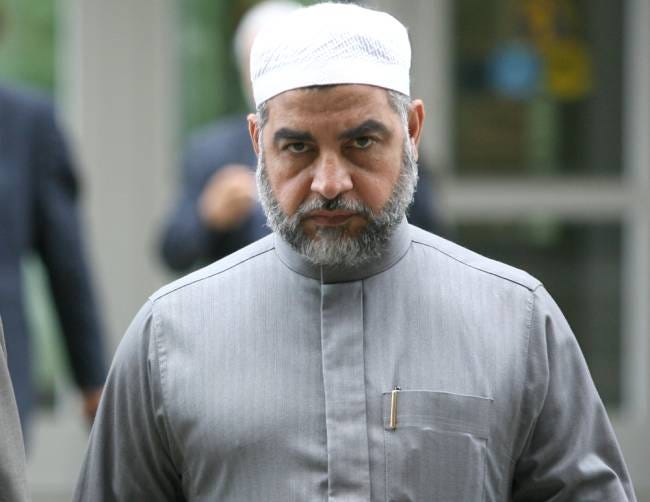Federal Court Blocks Deportation of Hamas-Linked New Jersey Imam
Appeals court blocks removal of Imam Mohammad Qatanani, who concealed Hamas conviction and defended suicide bomber donations

A federal appeals court has stopped the Justice Department from stripping away the green card of Mohammad M. Qatanani, a controversial imam who has spent nearly twenty years battling removal from the United States. The Third Circuit Court of Appeals determined on Monday that immigration authorities violated procedural timeline rules when they attempted to reverse a 2020 decision that had granted Qatanani permanent residency.
Terror Connections Span Decades
Qatanani's immigration troubles began when authorities discovered he had concealed his criminal history during his 1999 application for permanent residency. The imam, who leads the Islamic Center of Passaic County, had assured officials he possessed no terrorist affiliations and had never faced arrest.
According to the Middle East Forum, however, Israeli court records later revealed his 1993 detention and conviction for Hamas support activities. Government prosecutors presented evidence including signed confessions detailing his terrorist connections and witness testimony describing his recruitment efforts for the organization. Despite Qatanani's claims that Israeli forces coerced these statements, fingerprint analysis confirmed his involvement with the documents. His radical views have persisted in America, writes the nonprofit watchdog group Influence Watch, where he has publicly endorsed extremist figures like former Muslim Brotherhood spiritual leader Yusuf Qaradawi and defended the practice of financially supporting the families of suicide bombers.
Mosque's Troubling Leadership History
Qatanani represents the latest in a series of extremist leaders at his New Jersey mosque. Influence Watch explains that the institution's founding imam, Mohammad El-Mezain, became a convicted terrorist financier after channeling millions to Hamas through the Holy Land Foundation charity network. Court testimony revealed that El-Mezain had publicly bragged about collecting $1.8 million for Hamas during a mosque gathering in 1994, earning him a fifteen-year federal prison sentence.
Another former imam, Mohammad Al-Hanooti, proved problematic as well. FBI surveillance documented his apparent role in raising over $6 million for Hamas operations while supporting visitors from Israel and Jordan who spoke on behalf of the terrorist organization to American audiences. Federal investigators later named Al-Hanooti as a co-conspirator in the 1993 World Trade Center attack and connected him to broader Muslim Brotherhood networks operating in the United States.
Even recently, the mosque has continued platforming extremist voices. Last August, visiting preacher Sheikh Ismail Hamdi delivered a sermon celebrating Hamas "martyrs" and eulogizing a slain Hamas leader as a heroic figure, with the Middle East Media Research Institute (MEMRI) concluding he was referring to assassinated leader Ismail Haniyeh.
Broader Security Implications
While the court's decision protects due process rights, it highlights ongoing challenges in immigration enforcement when individuals with documented terrorist connections benefit from procedural protections. Qatanani's case illustrates these complexities: a Hamas-convicted individual who failed to disclose his criminal history, allegedly recruited others for a designated terrorist organization, and has led a mosque with a documented history of terror-linked leadership.
The ruling prevents future administrative shortcuts but does not resolve the underlying tension between legal procedures and national security concerns when immigration screening fails to identify individuals with established connections to terrorist activities.



Judges will be judges.